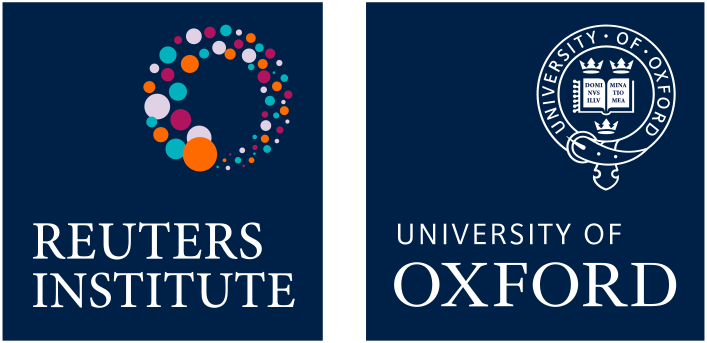
United Kingdom
The UK is characterised by well-established public service and commercial news providers which have historically dominated both on broadcast and in print and are also the biggest brands online. Digitally native outlets are successful in some niches while the impact of online creators or influencers is, so far, less marked than in other countries.
Fourteen years of Conservative-led government in the UK came to an end with the general election on 4 July 2024. The Labour Party returned to power with a 174-seat majority. Implementation began of the new Media Act and the much-anticipated Online Safety Act (both passed before the election). The Online Safety Act is designed to create a safer digital environment by imposing a legal duty on social media companies to protect users from illegal content, hate speech, and misinformation. Concerns about online misinformation dominated the UK news agenda in the summer of 2024 following the murder of three young girls at a summer holiday dance class in Southport on Merseyside. False rumours spread online that the assailant was a recently arrived Muslim migrant fuelled rioting in two dozen UK cities and led to more than 1,250 arrests.1 Debate about the scope and effectiveness of the Online Safety Act continues.
For news media providers, wrestling with the range of challenges presented by generative AI remained the main strategic priority. Newsrooms and product teams experimented with greater intent and more external-facing innovations were launched by several news outlets including the BBC, Reuters, the Guardian and the Financial Times.
Commercially, growing subscription and membership revenues remained a big part of the strategic agenda for most news publishers (DMGT reported more than 250,000 for its Mail+ partial paywall launched in January 2024)2 but with willingness to pay relatively low in the UK few are relying exclusively or even predominantly on reader revenue and are instead pursuing a balanced mix of advertising, subscriptions and other revenue sources.
Some of the most interesting new launch activity was in local news. Mill Media, a digital-only local news provider which first launched in 2020, has now expanded to six English and Scottish cities, including London which lost its last remaining daily print newspaper, the Evening Standard, in September 2024.
Financial challenges continue at the BBC, with another round of redundancies and closures at BBC News and more difficult down-sizing at the BBC World Service, where the BBC’s leadership agrees with the government about the importance of the World Service but not about using the licence fee to fund it. In the latest round of reductions, 130 jobs were cut and several programmes stopped. With a new Chairman, Samir Shah, appointed by the outgoing Conservative government, the BBC is now preparing to make its case in the Charter Review exercise planned to start in the summer of 2025 with a public consultation process. Various alternatives to the licence fee are being mooted. The current ten-year Charter runs until December 2027.
One of the UK’s major news broadcasters – Sky News – announced a strategic review in January 2025 which seeks to add some direct audience revenues to their existing business. It remains to be seen whether a legacy broadcaster can attract substantial revenue from premium content.
Although TV and radio news audience figures continue to fall for the main providers, GB News – a relatively new entrant – has seen its position grow both for its broadcast and online output in our weekly usage rankings (up from eighth to fourth in the TV, radio, and print ranking). GB News is co-owned by Sir Paul Marshall who also owns the conservative news and opinion site UnHerd and, as of September 2024, weekly magazine the Spectator. The protracted sale of the Spectator’s erstwhile stablemate, the Daily Telegraph, is approaching a conclusion. Subject to the necessary approvals, a consortium led by US-based RedBird Capital will acquire the title from RedBird IMI. RedBird IMI is 75% owned by Abu Dhabi’s International Media Investments, itself backed by the deputy prime minister of the UAE. Plurality concerns about foreign state involvement in UK media ownership led Redbird IMI to sell.
The other major transaction in the print sector was the sale of Guardian Media Group’s venerable Sunday paper, the Observer, to Tortoise Media – the ‘slow news’ start-up founded by James Harding, ex-Times editor and former Director of BBC News. Terms of the deal involved the Scott Trust (GMG’s ultimate owner) investing £5m into Tortoise Media for a shareholding that values the new Tortoise/Observer group at £55m.3
Jim Egan
Senior Research Associate, Reuters Institute
Changing media
News audiences for TV (down from 79% to 48%) and print (from 59% to 12%) have fallen substantially over the past 12 years, resulting in an online-led, mobile-first UK news landscape.
Pay for online news
10%
Trust in news overall
35%
(-1)
32/48
Overall trust in news is stable this year, but remains more than 15pp lower than before the Brexit referendum (2016). Public broadcasters such as the BBC, Channel 4, and ITV remain the most trusted news brands along with the Financial Times. More opinionated news brands tend to have lower trust levels in our survey, along with tabloid newspapers.

